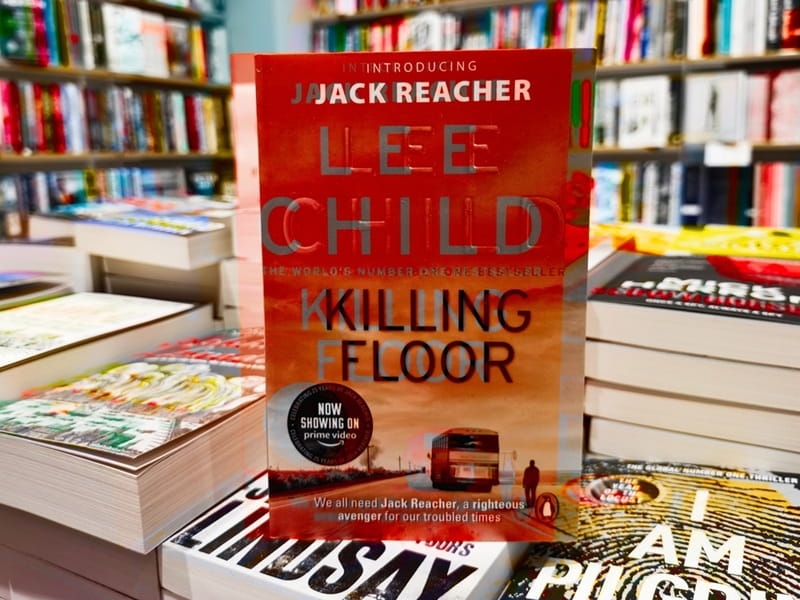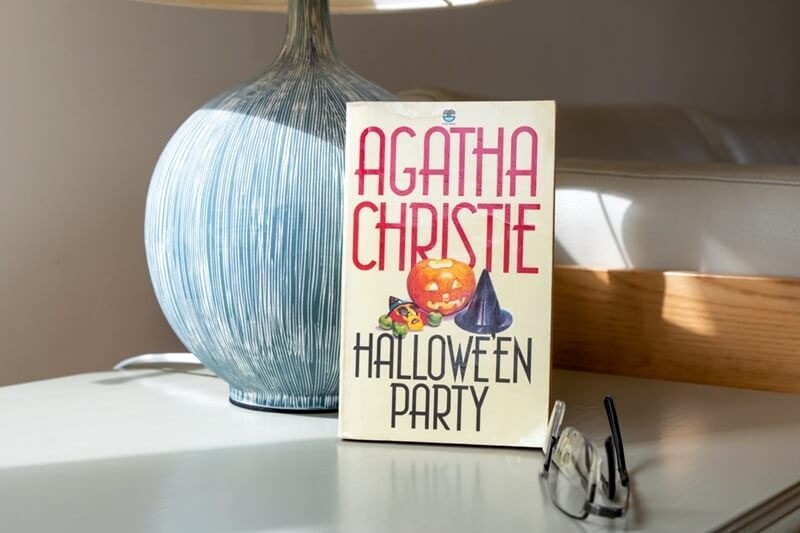Unraveling the Mind - Psychological Fiction Books to Read

Readers of psychological fiction find an adventure into the depths of human mind, mood, and behaviour to captivate them. Unlike other genres, which could concentrate on plot-driven action, psychological fiction books explore the complexity of the mind and look at what motivates people to act as they do and how they approach inner concerns. Readers of this genre find appeal in it not just for its entertainment value but also for its capacity to evoke empathy and introspection.
These works compress the line separating fiction from reality thereby allowing readers to see the inner workings of people as though they were experience the events firsthand by means of the personal examination of human foibles, resilience, and mental landscapes. The link gives psychological fiction great strength and appeal.
Psychological Fiction: Time Masters
Some works in the genre have evolved into eternal classics thanks to their expert handling of moral and emotional conundrums and sharp study of the human psyche. Mind-bending masterpieces like Dostoevsky's Crime and Punishment and Sylvia Plath's The Bell Jar have greatly affected readers for years because of their depiction of great personal difficulty and moral uncertainty. For example, Crime and Punishment brilliantly portrays the protagonist's spiral into guilt and paranoia, therefore highlighting the suffering of a confused mind. Conversely, Plath's The Bell Jar examines issues of depression and self-identity, therefore offering a true portrait of the protagonist's inner conflict as she negotiates social expectations and personal relevance.
Along with great psychological obstacles, these masterpieces provide peeks into civilisations and eras that form their experiences. Their universal themes of guilt, identity, and morality remain pertinent since they underline the timeless quality of some features of the human brain. These books are not only fun readings but also necessary studies in the complexity of mental and emotional struggle since they provide quite significant psychological insight into the human experience.
Modern Jewels found in Psychological Literature
Reflecting the changing nature of human relations, technology, and societal forces, modern psychological fiction has taken the genre in surprising and often inventive paths. Books such as Alex Michaelides' The Silent Patient or Gillian Flynn's Gone Girl expose contemporary studies of trauma, dishonesty, and concealment in surprising and arresting forms. Combining suspense with deft character development, these outstanding psychological thrillers captivate readers with the underlying psychological inquiry as well as tale turns.
Modern works also address trauma, identity, and the search for meaning in a fast-paced, sometimes detached society-issues pertinent to readers of today. Books like Eleanor Oliphant Is Completely Fine by Gail Honeyman discuss modern solitude and the value of human connection; works like A Little Life by Hanya Yanagihara emphasise the long-lasting effects of past experiences on present relationships. These psychological suspense books captivate readers by tying to their own complicated emotional experiences and the delicate ways in which individuals cope, connect, and grow, therefore reflecting the difficulties of the modern age and the genre's flexibility in meeting them.
Detailed Characters and Emotional Complexity

Psychological fiction stands out in part because of its emphasis on story driven by individuals. Usually, the story in these books provide a background for the closer examination of the personal inner conflicts. Books examining the complexity of human behaviour and the emotional underpinnings of it investigate the human mind using well-developed, diverse characters. Books like J.D. Salinger's The Catcher in the Rye and Sally Rooney's Normal People show how deft, realistic depictions could have great emotional impact.
Neither heroes nor villains; these tales centre upon people with human weaknesses and goals. Psychological fiction explores issues of identity, morality, and endurance using the choices, deeds, and ideas of a character. This method helps viewers to see the reasons behind particular actions and grow to respect the decisions the characters do apart from their defects. Sophisticated characters enable psychological fiction to expose the several sides of human nature and inspire readers to pay closer attention to others and themselves.
Resilience and Mental Health as Theme
Many times, fiction provides a safe environment for analysing difficult subjects; fiction on mental health does this by stressing episodes of trauma, anxiety, and hopelessness. Books like Stephen Chbosky's The Perks of Being a Wallflower and Susanna Kaysen's Girl, Interrupted by Susanna Kaysen bring readers across the psychological terrain of people conquering mental health issues and towards self-discovery and rehabilitation. These tales let readers explore perseverance and the human need for stability and relevance by not stifling hard facts.
Apart from raising knowledge on mental health problems, these books convey hope. These stories really resonate to those who find means to manage or conquer their mental issues since they inspire understanding and compassion. These books add to the conversation by showing how resilience, support, and self-acceptance could change life in a society in which talks about mental health are even more crucial.
You may also like: Book Club Essentials: How to Start and Maintain a Successful Group
Psychological Thrills and Unexpected Turns
Psychological thrillers enthral readers with its combination of surprising story turns and strong character profiles with captivating narrative. These psychological suspense books warp readers' brains and guide them down one route simply to expose unforeseen layers that change the meaning of the entire narrative. Knowing the complex causes behind every character's actions excites one as much as it does about future direction. From the darker parts of the human psyche, these incredible books reveal secrets and anxieties that have readers guessing right up until the very last page.
Among the best psychological thrillers accessible are Gillian Flynn's Gone Girl, famous for its narrative turns and dubious narrators. The book investigates accepted personal norms and creates a multifarious mystery looking at dishonesty, trust, and revenge. Paula Hawkins' The Girl on the Train similarly carries readers into a world of shattered memories and altered impressions, guided by the internal battle of the protagonist and her vision of reality. These thrillers provide excellent insights into the human brain by way of suspense as a lens through which one investigates problems of jealously, obsession, and betrayal. Psychological thrillers straying expectations provide readers with a harrowing ride and a profound, generally unsettling glimpse inside the brains of its characters.
Celebrated Literary Works with Psychological Based Approach
Psychological fiction is a genre with a list of very regarded writers regularly producing works with great psychological depth and character complexity. These authors are respected for their ability to create books delving into the human mind that combine restrained emotional voyages with fascinating stories. For example, Patricia Highsmith is well-known for her morally questionable traits and subdued yet terrible suspense. Analysing identity, envy, and amorality helps readers in her book The Talented Mr. Ripley manage a horrific metamorphosis of its protagonist into an unreserved manipulator.
Another authority in the field, Daphne du Maurier explores concepts of power, solitude, and identity by means of evocative sites and complex narratives. Rebecca's psychological conflict gets more intense as the main heroine fights the lingering presence of her dead first wife, therefore generating a suspense based on emotional depth. Modern writers such as Lionel Shriver and Tana French help to continue this legacy by underlining how psychological elements influence the relationships and choices of their characters. Through the social dynamics inside a group of young girls, French's Secret Place reveals underlying wants and fears. Shriver's We Need to Talk About Kevin, meantime, presents a reasonable assessment of moral responsibilities and family dynamics. These writers create psychological fiction works appealing on intellectual and emotional levels and shine in their area.
Literary Psychological Fiction for Those Entering Reflective Mode
Some psychological books give readers who value literary depth not only tension and drama but also rich language, metaphor, and insight. Readers who wish a pensive, intriguing experience will find these novels perfect since they usually mix thorough character descriptions with examinations of existential and social concerns. Literary concerns in works analysing resilience, identity, and emotional complexity-offering readers both beauty and truth-often coincide with fiction concerning mental health.
Beloved by Toni Morrison is one such exceptional work that deftly blends themes of memory, trauma, and identity into a tragic narrative of a mother's fight with her past. Morrison's psychological sense and lyrical language help the narrative to really captivate readers and motivate them to think on how tragedy forms identity. Another semi-autobiographical work by Sylvia Plath on the struggle with mental illness of a young lady is The Bell Jar. The book's refined language and meditative story help readers go with the protagonist towards self-awareness and dive into melancholy. These psychological fiction books enthral readers with their manner and leave them with continuous questions about the human experience, therefore combining narrative suspense with literary greatness.
Also Read: Create & Sell eBooks: A Complete Guide to Success
Conclusion
From exciting thrillers to literary experiments of mental health, psychological fiction encompasses a broad spectrum of genres. Choosing a book suitable for your taste in psychological complexity and narrative style will improve your enjoyment of it. Psychological suspense thrillers such as Gone Girl or The Talented Mr. Ripley contain intriguing stories full of moral conundrums for people that appreciate suspense. Works by Tana French or Lionel Shriver look at the darkest aspects of human relationships and personal growth if you're seeking strong emotional journeys. Books for readers who appreciate literary prose and introspection themes look at mental health and identity with psychological depth and creative charm. Both Beloved and The Bell Jar do this.
Psychological fiction delivers stories that linger far beyond the last page turned, therefore allowing readers to examine the several aspects of the human psyche. These mind-bending pieces give readers by skilful blending suspense, insight, and tale with intellectual stimulation and emotional depth a sense of Whether a reader prefers thrillers, literary works, or studies of mental health, psychological fiction provides something for them; it also closes the distance between enjoyment and contemplation and advances knowledge of the human psyche.
This content was created by AI





